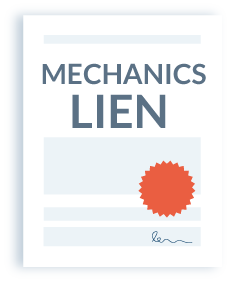Our nation’s capital is a unique place when it comes to construction. First, most contracting businesses working within DC are actually from the neighboring states, not DC itself. Second, the rules and regulations that exist are very different from those states, so it can seem like an intimidating territory for expansion. For example, getting a DC contractor license or DC home improvement license each has unique requirements.
But if you’re starting a business or trying to expand into DC, you’ve already got a lot on your plate. The last thing you need is to scour the internet looking for critical, need-to-know information. This guide will help you understand the requirements, identify which ones apply to you, and how to go about getting a DC contractor license.
Contracting in Maryland, Virginia, or another state outside Washington DC? Check out The Ultimate Guide to Contractors License Requirements in Every State to find all the licensing information you need.
Who needs a contractor license in DC?
If you’re wondering if you need a contractor license to work in DC, there’s a simple, straightforward answer: Definitely. Washington DC requires all contractors that work in the district to carry a license. This includes general contractors, home improvement contractors, and specialty contractors.
DC contractor license requirements state that “any person who, for a fee, is contracted to do construction on real property owned, controlled, or leased by another person of commercial, industrial, institutional, governmental, residential, or accessory use building or structures” needs a license.
Also, general contracting includes heavy construction, land development, and the construction of new buildings. Contractors falling under this category require a Basic Business License for General Contractor/Construction Manager License.
And, unlike most US states, this designation includes repair, remodeling, improvements, or demolition of buildings or structures.
There is also a license specifically for those working solely on residential properties, known as Home Improvement Contractors. It requires a different license known as a Basic Business License for Home Improvement Salesperson.
To be clear, both of these license types include contractors and sub-trades like:
- Roofing
- Rough carpentry
- Flooring
- Sheetrock
- Finish carpentry
- Electrical (requires an additional license)
- Plumbing (requires an additional license)
- HVAC (requires an additional license)
- And basically every other trade involved in the construction industry
Do you need a license to file a mechanics lien in DC?
Washington, DC, holds the contractor licensing reins tightly, and it has some very strict laws around licensing and mechanics liens. For example, unlicensed contractors do not have a right to a mechanics lien. And it doesn’t stop there.
Lien claimants with business structures organized under DC laws or working in DC must provide a copy of their current license to file a lien. Also, they must provide a certificate of good standing from the Department of Consumer and Regulatory Affairs issued within 180 days prior to the filing date.
And here’s the kicker: Those are the laws under the statutes regulating lien rights, but the Recorder’s Office has been known to impose additional licensing “rules” that might not be so clearly written in the statutes.
So, if you want to file a mechanics lien in DC, licensing is absolutely required — and could just be the tip of the requirement iceberg.
Washington, DC Mechanics Lien Rules, Requirements + Free Forms
How to get a DC contractor license
Knowing whether or not you need a license is the easy part. How to go about getting that license can prove to be a challenge.
Let’s take a look at these licenses on a case-by-case basis to determine which one (or ones) you might need and how to get one issued to your business.
Basic Business Licenses for General Contractors
Not only do contractors in DC need contractor licenses, but they also need to register their businesses with the Department of Regulatory Affairs. There are two types of licenses, and DC refers to them as “Basic Business Licenses.” Neither type requires a written examination.
The requirements for the Basic Business License for General Contractors/Construction Managers are:
- Get a Corporate Registration and Employee ID Number (not for sole proprietors working under their legal name)
- Get a Certificate of Occupancy or Home Occupancy Permit
- Get a New Business Tax Registration
- Provide a “Clean Hands Statement” that certifies you do not owe more than $100 to the DC Government
- Fill out this application
- Identify an Agent of the business who resides in DC and can receive legal documents for the business
- Provide three copies of two or more sample contracts and receipts
- Provide a certificate of insurance
- Pay a $654.50 fee for a one-year license and $1,204.50 for a two-year license
Getting a DC Home Improvement License
The requirements for DC Home Improvement License vary in that they must provide a Basic Business License for at least one Home Improvement Salesperson. Those requirements are:
- Apply using this portal
- Three digital passport photographs
- An affidavit sworn to before a notary public
- A Home Improvement Salesperson Designation Letter
- Copy of driver’s license
- Submit a Police History Report
- Pay a $154 fee
DC electrical contractors license
In addition to either a General Contractor/Construction Manager or Home Improvement Contractor License, electrical contractors operating within DC must also hold a contractor’s license issued by the Department of Regulatory Affairs Board of Industrial Trades. The requirements themselves aren’t unreasonable, though there are quite a few to meet. This breakdown of electrical licensing includes all of the statutes, but the basics include:
- Fill out this application indicating that you’re applying for an “Electrician Contractor” license
- Applicant must hold or employ someone who holds a master-level electrical license
- Hold a separate business license for each location
Upon the application’s approval, would-be electrical contractors will have to take an examination in order to receive their license.
DC plumbing contractors licenses
Plumbing contractors also have to carry a few licenses to contract in DC.
First, they must carry either a General Contractor/Construction Manager License or Home Improvement Contractor License. Then, to perform plumbing work, they must carry a plumbing contractor license issued by the Board of Industrial Trades. The requirements are:
- Fill out this application indicating you’re applying as a “Plumber Contractor”
- Applicant must hold or employ someone who holds a master-level plumbing license
Plumbing contractors will have to take and pass an examination in order to receive their license.
DC HVAC contractors licenses
HVAC companies must carry Refrigeration and Air Conditioning Contractor licenses issued by the Board of Industrial Trades in addition to the standard GC/Home Improvement Contractor licenses. Full details of this license class are available here, broken down by section. However, the main requirements for the contractor’s license are:
- Fill out this application, indicating that you’re applying for a Refrig/Air Cond Contractor license
- Applicant must be or employ someone who is a master-level “Refrigeration and Air Contractor” license
HVAC contractors will have to take and pass an examination in order to receive their contractor license.
Penalties for unlicensed contractors in DC
There are a lot of hoops to jump through in order to obtain a DC contractor license, and it might seem like an unnecessary headache. However, the District of Columbia takes its contractor licensing requirements very seriously.
According to the Department of Regulatory Affairs, failure to carry the appropriate contractor license in DC is a “Class 1 Infraction.”
A Class 1 infraction carries a minimum penalty of $2,000 for the first offense. If a licensed contractor hires an unlicensed subcontractor, both the licensed contractor and sub are guilty of this Class 1 Infraction, and both will receive the fines.
Also, don’t minimize the importance of lien rights. Remember, unlicensed contractors working in DC have no right to a mechanics lien.
This means that even if they deliver a project perfectly to contract, the project owner could choose not to pay them without worrying about the recourse of a lien. There could be other ways to pursue their money, but these other methods are much slower and more expensive for contractors.
Protecting your payments in DC
If the rules and regulations surrounding DC contractor licenses have you thinking the construction industry is a different world in Washington, that’s not entirely true. While DC contractors have to meet some unique requirements, they face the same challenges as construction companies across the country. And protecting their payments by knowing their lien rights is just as important in The Capital as anywhere else.
For instance, GCs, subs, and suppliers should understand that they do not have to send a preliminary notice on projects in DC to preserve their lien rights. But that doesn’t mean they shouldn’t; these documents serve as friendly introductions between the contractor and the project owner or GC (who may not know the contractor even exists up to that point). They also outline lien rights, explaining that the contractor is a professional outfit and expects payment for its involvement.
Also, meeting the deadlines surrounding mechanics lien in Washington, DC, is critical to preserving lien rights. The deadline for actually filing a DC mechanics lien is 90 days for all contract participants, and the window starts from the completion or termination of the project (whichever occurs first).
The deadline for enforcing a lien is quite short compared to most of the nation. DC contractors have up to 180 days to enforce their liens. And, within 10 days of actually filing the suit to enforce the lien, a notice of Pendency of Action must be recorded. Neither of these deadlines can be extended, so if you miss them, you could miss your chance at recovering money owed to you.







 First and foremost, you will need to be sure that you have the correct mechanics lien form (also known as a Notice of Mechanics Lien). DC Code is fairly lenient when it comes to the actual form itself, as long as it meets all of the statutory requirements. And the recorder’s office does provide a copy of the form for
First and foremost, you will need to be sure that you have the correct mechanics lien form (also known as a Notice of Mechanics Lien). DC Code is fairly lenient when it comes to the actual form itself, as long as it meets all of the statutory requirements. And the recorder’s office does provide a copy of the form for 
